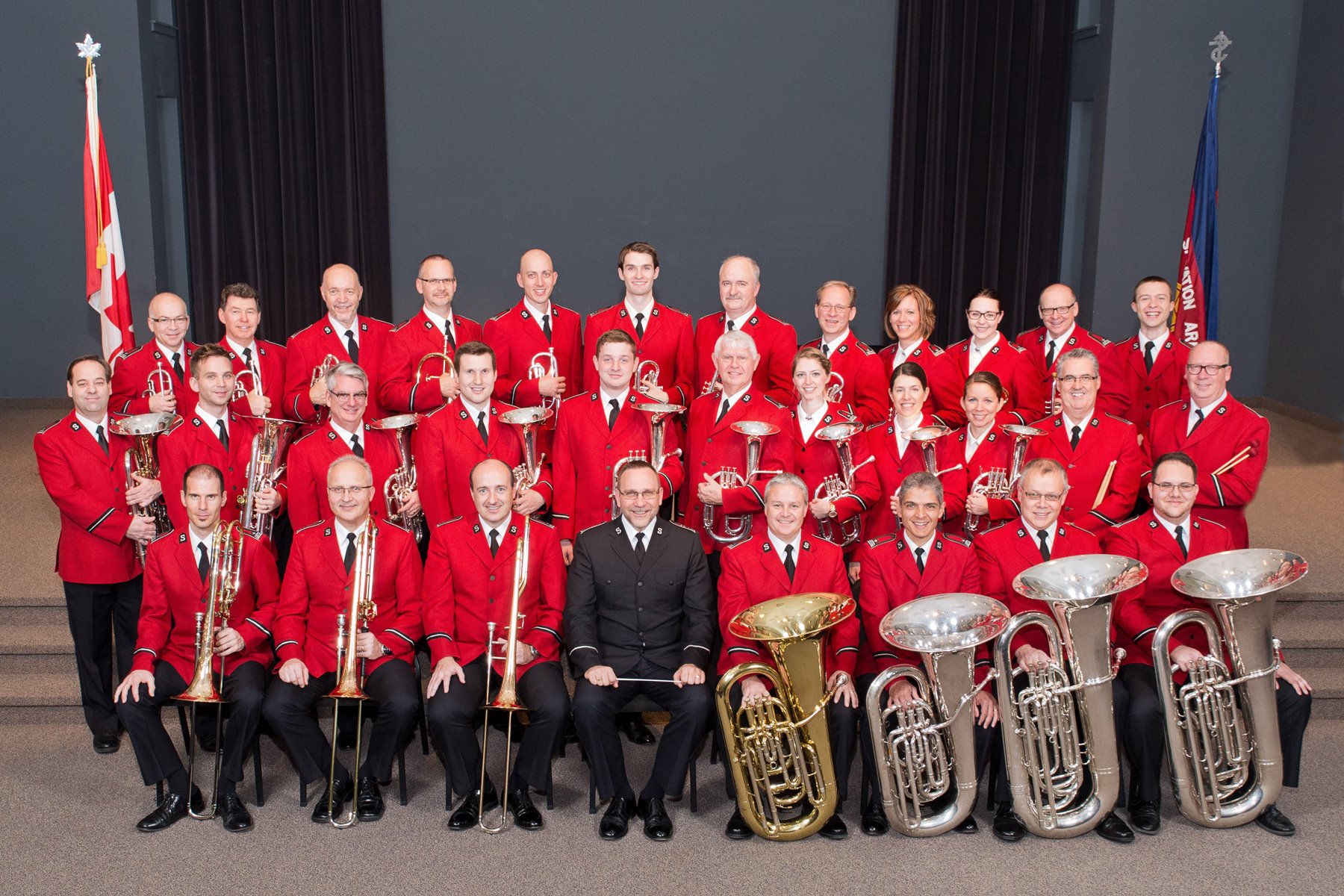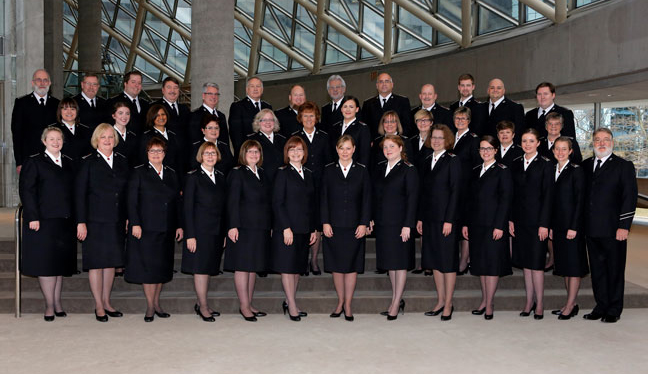Other
Staff Band and Songsters
The Canadian Territory is blessed to have both a Staff Band and a Staff Songster brigade, based out of Toronto.
In the earliest days of the Christian Mission, many meetings were held in the streets in an effort to take the message of the gospel to those who would be unlikely to go to church. On occasion, observers would shout insults and abuse to drown out the speaker’s message. To combat this, they used music to carry the message in a more effective way.
In 1887, Charles Fry and his three sons formed a brass quartet in Sainsbury. This quick became a successful method to handle the hecklers, but it also attacked large and curious crowds.
At first their music was purely functional, but over time, the choice of tunes moderated to include popular secular tunes of the day, with new “Christian themed” words. Using melodies that unchurched individuals were familiar with proved very valuable to early Salvationist in spreading the gospel message.
Over time, Salvation Army bands began to spring up in Corps throughout the world. Musician became more skillful in their playing, and the Army began to develop its own tunes and hymns.
William Booth had no great liking for choirs. In speaking to the delegates of the 1877 Conference of the Christian Mission he told delegates, ‘I have seen choirs tried under almost all circumstances and I have invariably found them to fail…Should you ever find a choir in connection with any hall in this mission, I give you my authority to take a besom and sweep it out, premising that you do it as lovingly as possible.’
This belief was firmly founded in this premise, ‘Will its introduction help save more souls?’
The Mission’s early success had been founded upon the flexibility of its services and its emphasis upon congregational participation.
While the name of choir had been careful avoided in the early days, the choir had already made appearances in the pioneer days of the Salvation Army. The Fry family, may had been instrumental as pioneers of Salvation Army brass banding; but they also sang together in harmony in the early 1880’s. Shortly after, Herbert and Emma Booth organized groups of Cadets into ‘a salvation singing brigade’ – which was quickly renamed to the ‘speaking, singing and praying brigade’.
In 1885, the British War Cry advertised its first few songs as ‘music to the favorite Salvationist Songsters of London.
As the Army’s work began to spread internationally, local needs dictated that local distinctives be adapted. In Sweden, stringed instruments would come to play an important role in Music in the Territory. In 1885, the first documented string band had been attached to the Gothenburg Corp.
In Australia, both band and songster brigades has been formed to travel the country and this would eventually lead t the formation of their own Staff Songsters.
It was 1889, that Commissioner John Carleton persuaded General Booth to officially sanction the experiment of a Corps Songsters Brigade at the Penge Corps, South London; with twenty-four commissioned members.
Today, contemporary music groups are widely evident in Salvation Army worship taking their place alongside the Ban and Songsters, or in some cases completely replace them. Regardless of the source of the musical accompaniment, the aid of Salvationist musicians remains to be servants of God in the mission of proclaiming the gospel through music that might be relevant to those who hear it and help them to understand the Christian message.
- Salvationist Yearbook, 1978 “Despite the Devils” by Major Malcolm Bale
- International Heritage Centre web site. (Origins – Salvation Army Music)
Booth University College
Located in Winnipeg, Manitoba, Canada, Booth University College is a Christian institution rooted in The Salvation Army’s 156 year history of meeting the needs of society’s most vulnerable. Deeply committed to social justice, we blend Christian faith and rigorous scholarship with a passion for service. Our approach to learning is anchored in academic excellence and based on a vision of hope, social justice and mercy for all.







